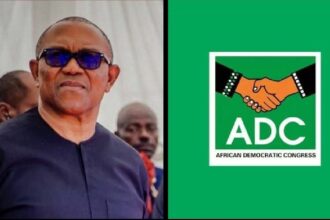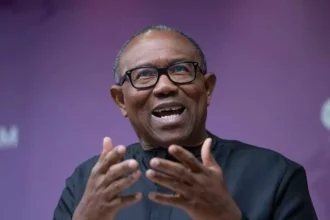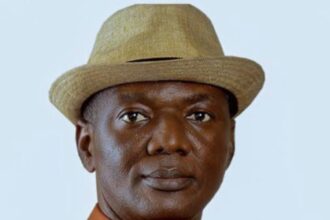
The Independent National Electoral Commission (INEC) has proposed a series of reforms aimed at strengthening Nigeria’s electoral system. These reforms were announced by INEC Chairman, Prof. Mahmood Yakubu, during a meeting with Resident Electoral Commissioners in Abuja.According to Yakubu, the proposed reforms are designed to address key challenges and improve the overall efficiency of the electoral process. The reforms are based on lessons learned from the 2023 general elections and subsequent off-cycle polls.
One of the key reforms proposed by INEC is the introduction of diaspora voting. This will allow Nigerians living abroad to participate in future elections. Yakubu stated that INEC is committed to making diaspora voting a reality.Another significant reform proposed by INEC is the phasing out of Permanent Voter Cards (PVCs). The commission plans to replace PVCs with computer-generated slips or downloadable credentials for voter accreditation. This move is aimed at reducing costs and eliminating voter card-buying schemes.
He said, “Among the major highlights of the commission’s recommendations is the imperative of legal clarity in result management, with regard to manual transfer versus the electronic transmission of results. “The commission also believes that with the introduction of the Bimodal Voter Accreditation System, the use of the Permanent Voters’ Cards as the sole means of identification for voter accreditation on election day should be reviewed. Those who already have the PVCs can still use them to vote, but going forward, computer-generated slips issued to the voter or even downloaded from the commission’s website will suffice for voter accreditation.
“This will not only save cost, it will also eliminate the issues around the collection of PVCs and the diabolical practice of buying up the cards from voters in order to disenfranchise them.“There are also recommendations in support of diaspora voting, the unbundling of the commission with the establishment of electoral offences tribunal and a separate agency to handle the registration and regulation of political parties. “Similarly, the commission will step up action on voter access and distribution to polling units.”INEC Chairman explained that these recommendations were captured in a 524-page review report on the 2023 general elections.
He said, “With the conclusion of five major off-cycle governorship elections and nine out of 21 bye-elections since the 2023 general elections, this is the most appropriate time for us to commence the implementation of the recommendations arising from our review of the general elections. “From the internal and external engagements, the commission has identified 142 recommendations dealing with the general state of preparedness, voter management, voter education and public communication, political parties and candidate management, electoral operations and logistics management, election officials and personnel, partnership and collaboration, monitoring and supervision, election technology, voting and result management, election security, electoral offences and the electoral legal framework,” the chairman said.
The proposed reforms also include the establishment of clear guidelines on the roles of manual and electronic methods in result transmission. Yakubu noted that the introduction of the Bimodal Voter Accreditation System has highlighted the need for a more streamlined process.
Yakubu noted, “Out of the 142 recommendations, 86 require administrative action by the commission. It is therefore pertinent that we engage first with our Resident Electoral Commissioners because of your frontline role in the implementation of the recommendations.
“This is followed by 48 recommendations that require action by a variety of stakeholders, including security agencies, mobile network operators, statutory bodies, political parties, transport unions, civil society organisations and the media. “On the legal review, there are eight recommendations that require legislative action by the National Assembly. Very soon, the commission will make a presentation to the Joint Committee of the Senate and House of Representatives on Electoral Matters as they continue to deliberate on electoral reform.”
INEC also plans to introduce early voting to accommodate citizens who are unable to vote at their registered polling units. This includes INEC staff, security personnel, and other individuals who may be required to work on election day. The commission is also advocating for the unbundling of its responsibilities, with proposals for the establishment of an electoral offences tribunal and a separate agency to oversee political party registration and regulation. Other key areas of reform include cleaning the voters’ register in collaboration with the National Identity Management Commission. INEC also plans to enhance partnerships with transport unions to ensure the timely deployment of election materials.The commission also plans to intensify voter education campaigns to combat misinformation and promote greater participation by marginalized groups. This includes efforts to increase voter registration and participation among young people, women, and individuals with disabilities.
Yakubu emphasized the importance of collaboration and stakeholder engagement in the reform process. He urged the Resident Electoral Commissioners to engage deeply with the proposed reforms and contribute to the development of a more efficient and inclusive electoral system. The proposed reforms have been documented in a comprehensive report, which will soon be made available to the public in hard and soft copies. Yakubu encouraged stakeholders to review the report and provide feedback to help shape the future of Nigeria’s electoral system.
The implementation of these reforms is expected to have a significant impact on the credibility and efficiency of Nigeria’s electoral process. By addressing key challenges and introducing new innovations, INEC aims to strengthen public trust and confidence in the electoral system.
“As a matter of urgency, the commission also intends to develop protocols for the cleaning up of the voters’ register in collaboration with other agencies such as the National Identity Management Commission and the National Population Commission. Other areas of reform include advocacy for affirmative action for greater participation of under-represented groups, a more robust voter education and public communication to combat fake news and misinformation,” Yakubu stated.
The success of these reforms will depend on the collaborative efforts of INEC, stakeholders, and the Nigerian public. As the commission moves forward with the implementation of these reforms, it is essential that all stakeholders remain engaged and committed to the goal of strengthening Nigeria’s democracy.
Source: https://punchng.com








